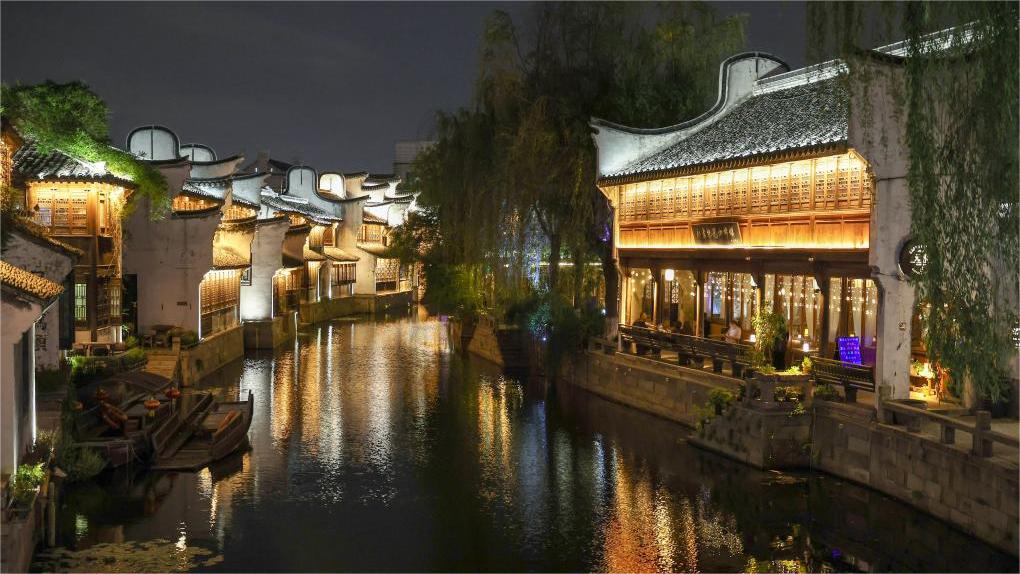China unveils new measures to facilitate opening-up, international exchanges
China's National Immigration Administration (NIA) has unveiled an array of new measures on Sunday that bring more conveniences to the entry and exit management of the public and businesses, including streamlining document processing and application, extending the duration of business stay, and meeting diverse tourism needs, which observers said represents the country's stepped-up effort in promoting high-level opening-up and facilitating international exchange.
The fresh move, adding to a list of policies that promote the integration of the Guangdong-Hong Kong-Macao Greater Bay Area (GBA), will greatly facilitate business, people-to-people and tech know-how exchanges between the Chinese mainland and Hong Kong as well as Macao Special Administrative Regions (SARs), according to observers. They pointed out that as the link-up further gears up, the scope of interaction between the Chinese mainland and the two regions is poised to become "deeper and broader."
That also presages more business opportunities - building upon Hong Kong's role as a "super-connector between the Chinese mainland and the world, as well as Macao's unique position as a free trade port.
It is set to inject new vitality into the two regions' developments, boost economies and is thus conducive to their long-term prosperity and stability from a long-term perspective, analysts said.
Under the new policies, which will take effect on May 6, residents aged 16 or above (except for civil servants and active military servicemen) in 20 pilot cities, including Beijing and Shanghai, will be able to renew and reissue their passports, as well as travel documents to Hong Kong, Macao and Taiwan regions via online platform.
Chinese mainland residents who apply for multi-entry to Hong Kong and Macao with business purposes can use smart equipment to get a quick-access endorsement. In addition, the duration of stay for holders of business endorsement to Hong Kong and Macao will be extended from seven days to 14 days.
Specific policies have also been set up for high-level talent and certain key groups, among other policies to shore up outbound tourism to the two SARs.
Beijing and Shanghai will be included into the policy of issuing multi-entry endorsements with a validity of one to five years for six designated categories of talent to travel to Hong Kong and Macao, with a duration of stay less than 30 days for each trip.
The arrangement was initially only applicable to mainland residents in the Guangdong-Hong Kong-Macao Greater Bay Area.
High-level opening-up
The HKSAR government on Sunday said it welcomes enhancements to "exit endorsement for business visit" and "exit endorsement for talents" by the immigration authorities.
"The two new measures will facilitate Hong Kong's further integration into the national development and achieve concrete results on the solid policy foundation of facilitating the 'southbound and northbound' two-way flow of talents," said a statement on the website of the HKSAR government.
With regards to the optimized business visit arrangement, it noted that the measures will greatly enhance convenience for mainland businesspersons who travel to Hong Kong for various business activities and promote their exchanges with the business community in Hong Kong.
Liu Guohong, director of the Department of Finance and Modern Industries at China Development Institute in Shenzhen, told the Global Times on Sunday that the newly launched policies are of strategic importance taking account of the complex international situation, the two cities' unique role in the country's high-level opening-up landscape, and strengthened economic and social development ties between Chinese mainland and Hong Kong as well as Macao.
It also squarely rebuts certain foreign media outlets' smear against HKSAR, which alleged that foreign capital and global talent have been fleeing from the city. The arrival of more business people and skilled workers will likely drive local economic, commercial, and cultural exchanges with the international community, which is anticipated to draw in foreign investment, boost foreign trade and more, analysts pointed out.
"It could further consolidate Hong Kong's magnet as an international talent and capital hub," Liu said.
He expounded that the continued internationalization of Hong Kong and Macao will be beneficial to the national opening-up plan, and there are more rooms for cooperation between the Chinese mainland and the two SARs in trailblazing systematic opening-up reforms, giving full play to the two regions' advantages of "one country, two systems."
On March 1, the island of Hengqin in South China's Guangdong Province started a new customs operation that allows most goods to be moved there tax-free from the neighboring Macao SAR, the Xinhua News Agency reported. It is a major arrangement to enrich the practice of "one country, two systems" in Macao.
In addition, a new type of multi-entry endorsement will be issued to mainland residents to travel to Macao for purposes of participating at exhibitions, medical treatment and performing arts activities. One to two companions of those who seek medical services in Macao will be eligible for applying the same endorsement.
This year marks the 25th anniversary of Macao's return to the motherland, an important historical moment. Liang Haiming, chairman of the China Silk Road iValley Research Institute, a Hong Kong-based research institute, told the Global Times on Sunday that the introduction of some facilitation policies will further strengthen the cooperation and exchange between Macao and the Chinese mainland.
"Hong Kong is also at a stage of transitioning from governance to prosperity, and the central government is fully supporting this process with more stimulus measures," Liang said.
Strengthened link-up
In February, the Guangdong-Hong Kong-Macao Greater Bay Area (GBA) celebrated its 5th anniversary. While the GBA plan has largely fueled ripe collaborations within the region, the new arrangements are set to ride on the momentum, further unfolding soaring demands across tourism, retail, hotels and dining sectors and leading more Chinese mainland cities to engage in deeper exchanges with the two SARs, according to observers.
Specifically, the initiatives focus particularly on simplifying travel for business professionals and talent from the mainland are expected to generate more business opportunities in Hong Kong and Macao, as well as enhancing the local talent pool and promoting cross-regional knowledge exchange, said Liang.
He added that Chinese mainland-based skilled workers may also bring new momentum to the innovation and development of Hong Kong and Macao.
Meanwhile, those measures pertaining to encourage people-to-people exchange is also a boon to the tourism market, with Hong Kong local businesses' expectation running high for the upcoming May Day holidays.
The Hong Kong Tourism Board said in a statement sent to the Global Times on Sunday that ahead of the May Day holidays, it will distribute 16,000 consumption coupons for free to tourists from Xi'an in Northwest China's Shaanxi Province and Qingdao in East China's Shandong Province. It is the first time that the Hong Kong tourism authority will give coupons to mainland cities, amid broad efforts to attract mainland travelers.
In March, two Chinese cities - Xi'an in Northwest China's Shaanxi Province and Qingdao in East China's Shandong Province - were added to the individual visit scheme (IVS), bringing the number of designated mainland cities to 51.
It is expected that 1.76 million trips will be made in and out of the Chinese border ports each day during the May Day holidays, up 40.5 percent compared with that of 2023, according to NIA. And as the streak of HK and Macao residents travelling northward and mainland residents heading southward continues, the traffic at ports that border Hong Kong and Macao SARs is estimated to increase significantly, NIA said.
The immigration authority estimated that the land port of Luohu in Shenzhen will see traffic of around 194,000 trips during the holidays, while 110,000 trips will also be made through the Zhuhai port of the Hong Kong-Zhuhai-Macau Bridge.
Photos
Related Stories
- China introduces policies to facilitate mainlanders' trips to Hong Kong, Macao
- Immigration authorities extend Chinese mainland residents’ business travel in Hong Kong, Macao to 14 days
- Hong Kong, Shanghai to boost financial ties
- Macao's unemployment rate in 1st quarter hits 2.1 pct
- Hong Kong, Macao SAR governments welcome updated policies to facilitate mainland business, talents' travels
- Macao announces schedule for election of Chief Executive Election Committee
Copyright © 2024 People's Daily Online. All Rights Reserved.









